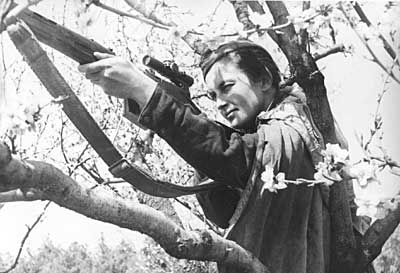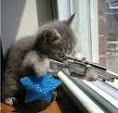Carly woke up when her brother Sam touched her on the arm. He didn’t say anything, he didn’t need to. She quickly got dressed, strapped on her revolver, put on her boots and went downstairs. Sam was in the kitchen, yawning. The kitchen was dimly lit, only a faint glow came through the glass panel of the wood stove. It was four in the morning.
“‘Anything new,” she asked while stretching.
He shrugged. “The chickens were making a little bit of noise, but I didn’t see anything.”
“Did you use the flashlight?”
“No.”
Carly nodded. Uncle Max was big on not showing light at night. It had better be a dangerous situation to justify using a light. Uncle Max said that lights attract attention, especially the bad kind. More than one of the kids had taken a beating for it.
“What’s it like out,” she asked.
“Not too cold, maybe 40 or so. No wind, clear sky. Moon is still up, but it’ll set in an hour or so.”
Sam handed her an orange whistle on a lanyard cord, the night watch rifle and two spare magazines. Carly removed the magazine from the rifle, checked to verify that there was a round in the chamber and re-inserted the magazine. The rifle was a Ruger 10/22 with a flashlight and a silencer that Uncle Max had built. The silencer had been illegal at one time, but nobody had seen a cop in four years. Uncle Max was fond of saying that the law was what was in your holster. The whistle was to be used only in an utter emergency. Sound carried these days, since there wasn’t any background noise to speak of.
She put on her coat, hat and gloves, picked up the rifle and went into the light lock. The “light lock” was a mud room with a door on either end, one into the kitchen and one to the porch. The inside was painted flat black. At night, the windows in the doors and in the mud room were covered with heavy drapes. Carly figured that the term “light lock” came from her cousin Tyler’s love of science fiction.
Carly paused on the porch to let her eyes adjust, which didn’t take very long. It was scarcely brighter in the kitchen than it was outdoor, She thought for a few seconds, then opened the door to the mud room and pulled out a white poncho, more of a cloak, really. She didn’t know if anybody was about, but why give them an edge, she reasoned.
She went out and made her rounds. The barn was secure, the sheep, chickens and the few cows were quiet. She still was not used to how few animals there were in the barn anymore. It was a lot harder to make good hay ever since the nights that the sky burned, which meant that fewer animals had be fed through a winter. The pigs were long gone, there was hardly enough food for the people, let alone scraps for pigs.
The night security watches, when everyone else was asleep, were the only times that Carly made the next stop on her rounds: The family graveyard. There were no tombstones, only carved wooden boards. She stopped at the grave of Billy, her brother. People once called her and Billy “Irish twins;” Billy had been eleven months older that her.
Fourteen months ago, Billy got a bad cut on his arm as he and Sam were skinning a deer. Back in the old days, that would have meant a trip to the emergency room for some stitches and ten days’ worth of antibiotics. Billy might have then had a small scar to talk about. Now there were no ambulances, no emergency rooms and no antibiotics. Billy had died of blood poisoning five weeks later. They couldn’t even bury him until the Spring thaw.
There was a little snow on the marker. Carly brushed it off with a gloved hand. There had been no real time for her to mourn or grieve. Life was hard since the skies burned and it seemed to her that each year was harder than the one before. If it wasn’t for having been Billy’s primary nurse as he slid down towards death, Carly would have thought that he was the lucky one.
It was getting on towards sunup. Carly went back to the house. She built the makings of a fire in the wood cookstove in the kitchen, then used a stick to transfer fire from the wood stove to the cookstove. The cookstove had been in the basement of the small barn for decades, too heavy to take away and too beat-up to sell. It had taken the men and boys days to move it into the kitchen and to move the propane stove out to the small barn. They counted themselves lucky to have it; lots of families were cooking now in their fireplaces.
Carly then went to the sink in the basement and used the hand-pump to draw water for the morning meal, She was carrying the second pail up from the basement when she felt the first kick. Hell of a thing to be born in this day and age, Carly thought.
Carly was sixteen years old.
Tuesday, February 15, 2011
Subscribe to:
Post Comments (Atom)


No comments:
Post a Comment